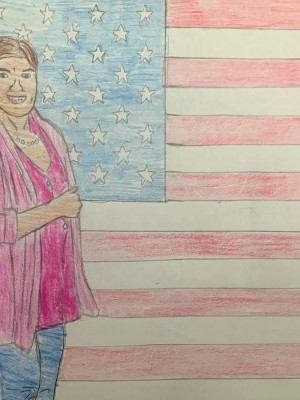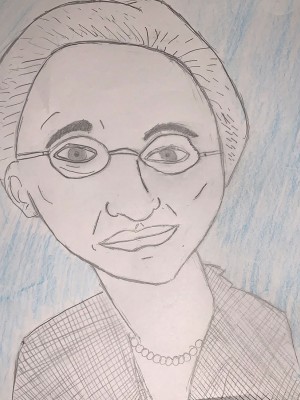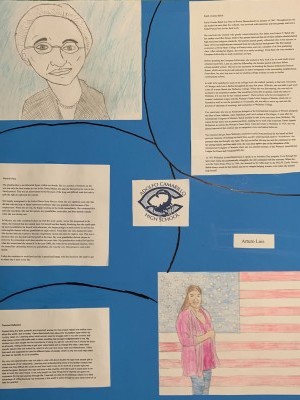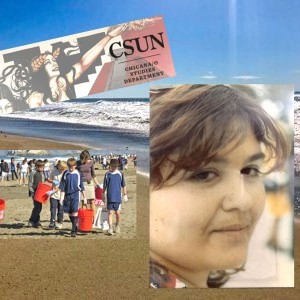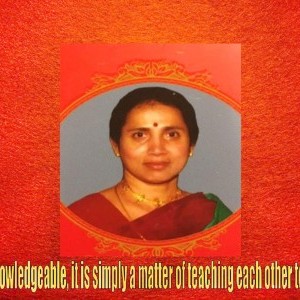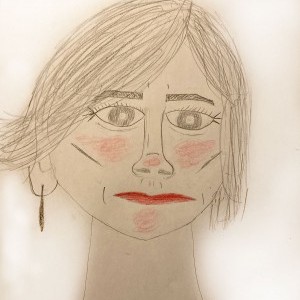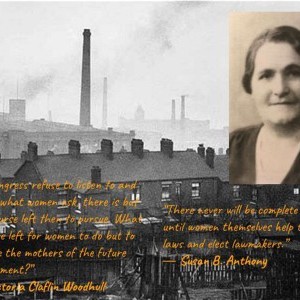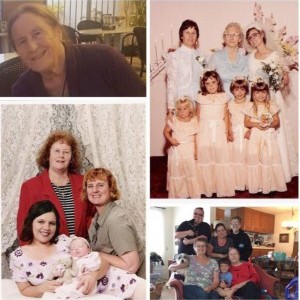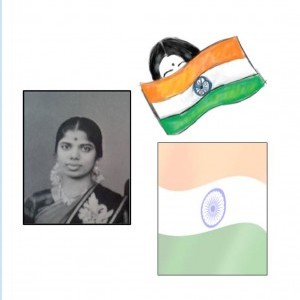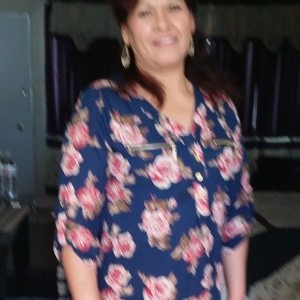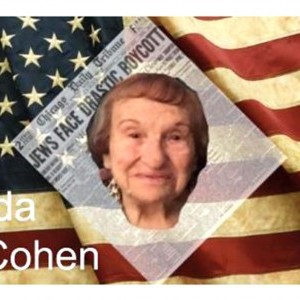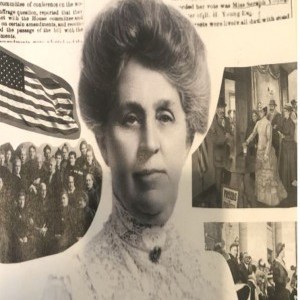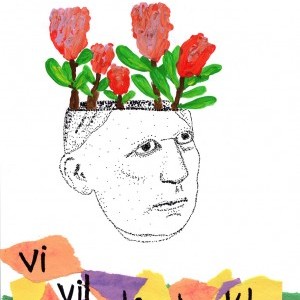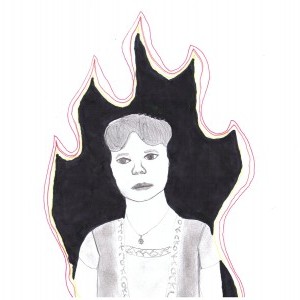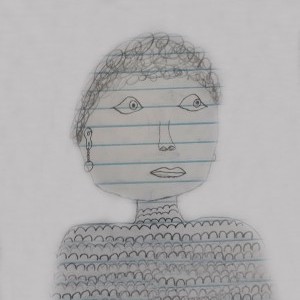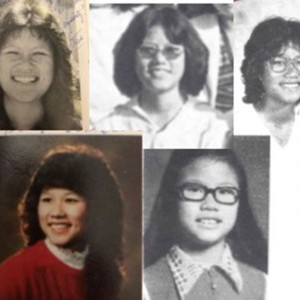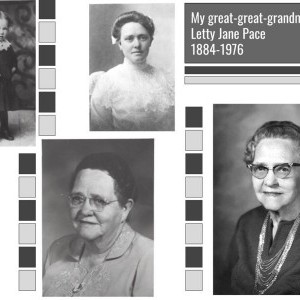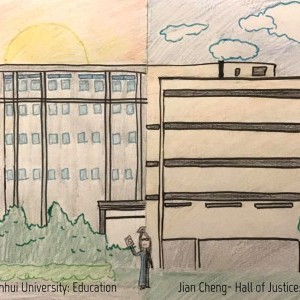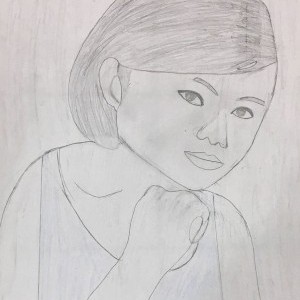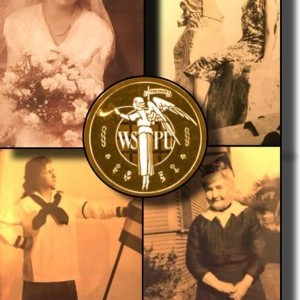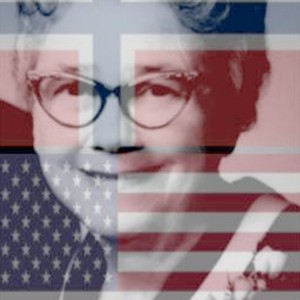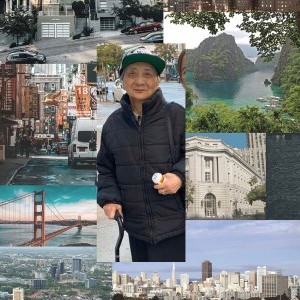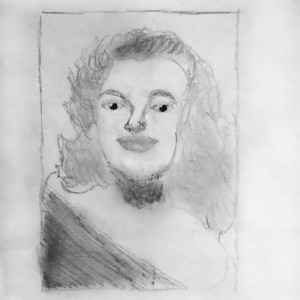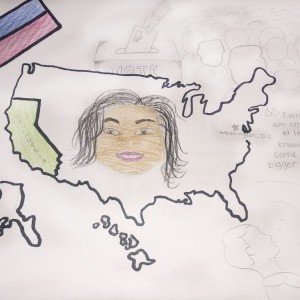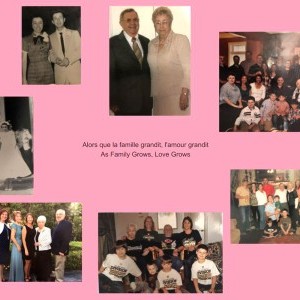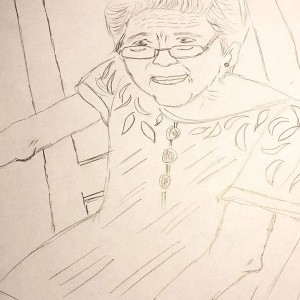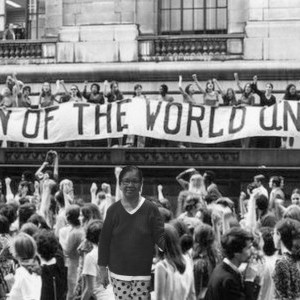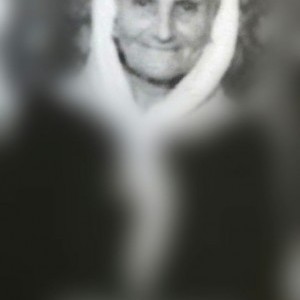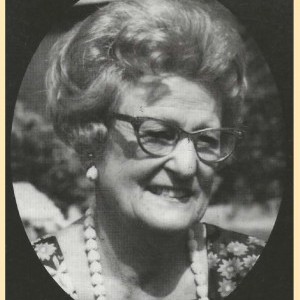Arturo Luis
Adolfo Camarillo High School | Camarillo, CA | 10th
Inspirational Family Member
My Grandmother
My grandmother is an influential figure within my family. She is a symbol of freedom, as she was not only the first woman to vote in the United States, but also the first person to vote in her family, period. This was an achievement to her because of the long and difficult road she took to gain the right to represent her country.
She legally immigrated to the United States from Mexico when she was eighteen years old. She did this with the help of her father’s previous residency that was granted to him because of his employment. When she arrived, she began working in the fields immediately. She continued this until she was thirty. She met her spouse, my grandfather, soon after, and they started a family when she was twenty-one.
In Mexico, she only completed school up until the sixth grade. As her life progressed in the United States, she realized that she wanted more for herself and her family. Realizing that she could open up more possibilities for herself with education, she began going to a trade school as well as taking in English classes with my grandfather at night school. From there she only pushed for more. She decided that she wanted to become a legitimate citizen and earn the right to vote. This was a decision that was beyond bold at the time. My own grandfather did not choose to strive for his citizenship until about another ten years later. My grandmother worked hard for what she wanted and she earned it. In the year 2000, she voted in the presidential election. Since she earned her citizenship before my grandfather, she was the very first person to vote in her family.
Today she continues to work hard and she is proud and happy with the decisions she made to get to where she is now in her life.
Historical Figure I Admire
Emily Greene Balch
Emily Greene Balch was born in Boston, Massachusetts in January of 1967. Throughout her life she studied in more than five schools, was involved with numerous activism groups, and won a Nobel Peace Prize for her hard work.
She was born into a family who greatly valued education. Her father was Francis V. Balch and her mother was Ellen Noyes. Both of her parents believed that all of their children should cherish high moral and religious standards. Her parents played greatly influential roles in her success, as many of her accomplishments stemmed from her educational background. She first studied economics at Bryn Mawr College in Pennsylvania, and was a member of its first graduating class. After earning her degree, she went on to study sociology. From there she was awarded a European fellowship to study economics in Paris.
Before attending her European fellowship, she worked in New York City to work under social reformer Jacob Riis. Later on, after her fellowship, she became paired with three fellow reform-minded women. This led to her assistance in founding the Boston Settlement Denison House, which served to provide education to many immigrants in the surrounding neighborhood. From there, her next step was to turn to teaching college students in order to further communicate reform.
In order to be qualified to teach at the college level, she studied partially at Harvard, University of Chicago, and even in Berlin throughout the next few years. With this, she was able to get a job at the all-women liberal arts Wellesley College. When she was first starting, she was only an assistant to an economics teacher. She would have been able to quickly climb the ranks of Wellesley if it was not for her “radical actions”. These actions were her investigations of women’s minimum wages with the Women's Trade Union League of Boston, which she co-founded as well as was the president of. Eventually, she was able to move up, and earn the position of chairman of sociology and economics at Wellesley College.
Two years later, she was an American delegate at the International Congress of Women alongside the likes of Jane Addams, Alice Hamilton, and Lois Lochner at The Hague. A year after the International Congress of Women, Balch decided to take a two-year leave from Wellesley. The reason for her leave was to pursue pacifism, leading her to work with American Union Against Militarism as well as the Women's Peace Party. Upon her return to Wellesley in 1919, she was denied renewal of her contract due to outspoken views and radical behavior.
The response she got from Wellesley could have easily been predicted by her based on their previous response of holding her back from quickly achieving high ranking. Nonetheless, she pursued what she thought was right. She did not let her job stop her and she continued on with her strong beliefs, and that same year, she was once again a part of the delegation of the International Congress of Women where she was elected secretary of the Women's International League for Peace and Freedom (WILPF).
In 1935 Wellesley invited Balch back to speak at an Armistice Day program. Even through her later years when she economically struggled, she still continued with her activism. When she won the Nobel Peace Prize in 1946, she donated her $17,000 share to the WILPF. Emily Greene Balch always stood for her beliefs and never stopped helping women, even when she needed help herself.
What the Project Means to Me
Researching the likes of powerful and important women for this project helped me realize more about the world I live in today. I have discovered more about the foundation upon which my country relies. Learning about what women used to struggle with in my own country and what many women still suffer with in other countries has brought enlightenment to me. My studies have also taught me the importance of using my right to vote and how it should be done at all levels. Voting is the way to get your voice heard and to change the rules. Laws have specific places they are meant for, which is why we have local, state and federal laws. I think that each are supposed to care for different types of people, which is why we must help make the laws as specific to us as possible.
My very own grandmother was not able to vote until about double the age most people get to vote because of her citizenship status. Learning and understanding more of my family’s history has shown me how difficult life could be and how hard it may be to work for a simple right that should be given. Because she was not born in this country, she had to put in extra work to be able to have her voice heard. It not only taught me new things but it inspired and gave me motivation for my own journey through life. I learned my duty as an American citizen is to take advantage of voting because not everyone in the world is lucky enough to have what some of us take for granted.
Explore the Archive
More From This Class
Click on the thumbnails below to view each student's work.Deadline Extended
There's still time to join Women Leading the Way.
Become a part of our storytelling archive. Enroll your class today.
Join the Project

